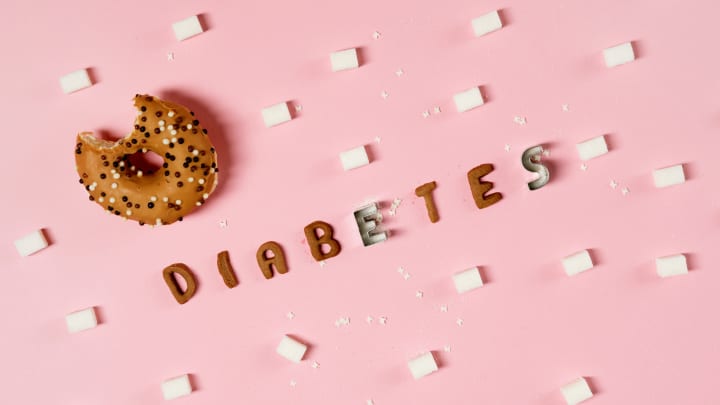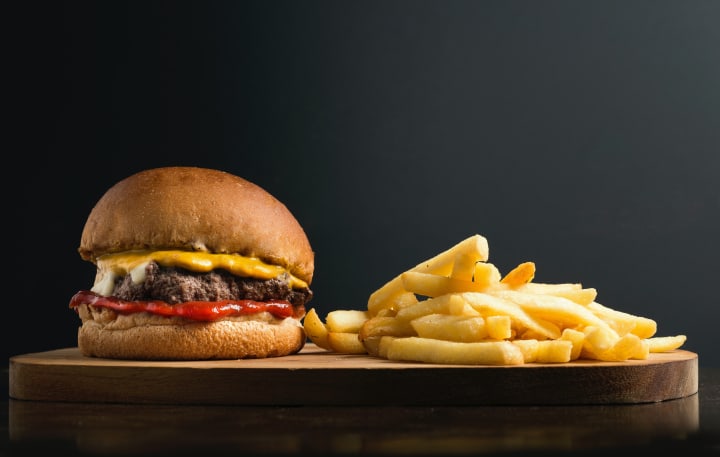According to a Harvard dietitian and brain researcher, these 5 meals 'weaken memory and concentrate.'
Health

It's never too late to begin eating in a way that gives you the best chance of avoiding dementia as you become older and keeping you focused and sharp every day.
I explore how our gut bacteria might activate metabolic processes and brain inflammation that affect memory as a nutritional psychiatrist, Harvard Medical School faculty member, and author of "This Is Your Brain on Food." Existing research suggests that we may be able to minimize the risk of dementia by avoiding foods that can harm our gut bacteria and impair our memory and concentration.
To reduce inflammation and enhance brain health, sharp thinking, and good decision-making, I try to avoid or limit the following foods:
Added sugars.

To power cellular activity, the brain uses glucose, a type of sugar, as an energy source. A high-sugar diet, on the other hand, can cause an excess of glucose in the brain, which has been related to memory problems and decreased hippocampal plasticity in studies (the part of the brain controlling memory).
The brain is flooded with too much glucose when you eat unhealthy processed meals like baked goods and soda, which are often filled with refined and added sugars, often in the form of high-fructose corn syrup.
The American Heart Association recommends that, * women drink no more than 25 grams of added sugar per day. * men consume no more than 36 grams of added sugar per day.
Alcohol.
In my profession, I frequently encounter people who lead stressful lifestyles. As a stress reliever, the "work hard, play hard" mentality sometimes leads to extensive drinking on weekends. While alcohol temporarily relaxes them, they pay the price the next day when they wake up nervous and with brain fog.
Archana Singh-Manoux, a research professor and director at the French Institute of Health and Medical Research, and her colleagues studied the effects of alcohol on the occurrence of dementia in 9,087 people over a 23-year period.
People who abstained from alcohol totally or consumed more than 14 drinks per week had a higher risk of dementia than those who drank alcohol in moderation, according to a study published in the British Medical Journal in 2018.
Carbohydrates with a high glycemic index.
Even if high-carbohydrate foods don't taste sweet — such as bread, pasta, and anything else produced from refined flour — your body processes them in the same way it does sugar.
As a result, they may increase your chances of developing depression. Don't worry, I'm not suggesting that you completely eliminate carbs from your diet! However, the quality of the carbs you consume is important.
Researchers wanted to see if any specific carbohydrates, if any, were linked to depression in 2018. They asked 15,546 people to fill out a questionnaire termed the "carbohydrate-quality index."

Whole grains, high-fiber meals, and carbs with a low glycemic index were described as "better-quality" carbohydrates (GI). The GI is a measurement of how quickly meals break down into glucose during digestion; the faster a food breaks down into glucose in the body, the higher the GI rating.
Researchers discovered that persons with the greatest carbohydrate-quality index scores, implying they ate higher-quality carbs, were 30% less likely to develop depression than those who ate high-GI carbs.
Potatoes, white bread, and white rice are all high-GI carbohydrates. Medium-GI foods include honey, orange juice, and whole-wheat breads. Green vegetables, most fruits, raw carrots, kidney beans, chickpeas, and lentils are all low-GI foods.

Fried foods.

Still, when it comes to brain health, it's a good idea to limit your intake of fried meals. In fact, a high-fried-food diet was associated to worse learning and memory scores in one study involving 18,080 adults. The most likely reason is that these vices produce inflammation, which can harm the blood arteries that feed blood to the brain.
Another study looked at 715 people to see how depressed they were and how mentally resilient they were. It also revealed how much fried food they consume. Researchers discovered that people who ate more fried meals were more likely to acquire depression over the course of their lives.
If you eat fried meals on a daily basis, cut back to once a week. If it's a weekly habit, limit yourself to once a month. You're already on your way to happy times if you don't eat fried meals.
Nitrates.
Nitrates, which are used as a preservative and to increase color in deli slices and cured meats such as bacon, salami, and sausage, have been linked to sadness.
According to one recent study, nitrates can affect gut bacteria in such a way that it causes bipolar disorder.
If you can't live without salami and sausages, look for ones made with buckwheat flour as a filler. Buckwheat flour is high in antioxidants, which can help to mitigate some of the health risks associated with these meats.
Food choices that are healthy are a wise investment.
About the Creator
pasan wije
Always smile.
Enjoyed the story? Support the Creator.
Subscribe for free to receive all their stories in your feed. You could also pledge your support or give them a one-off tip, letting them know you appreciate their work.






Comments
There are no comments for this story
Be the first to respond and start the conversation.